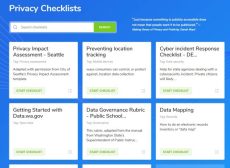DigitalTown’s ‘operating system for cities’ aims to prop up local economies

Scene: You want to make tomato sauce for dinner but you broke your wooden stirring spoon — what do you do?
Most would log onto Amazon, order a new one, use something else in the meantime, and move on with life — never giving a second thought to the local artisan who hand-carves his culinary instruments from organic cherry trees and is, incidentally, relying the supplemental income to feed his pipe dream of someday escaping his desk job at Amazon. You might prefer his product, which is of a higher quality, and you may even be predisposed to buying locally. But how would you find him in the first place?
Online retailers and service brokers like Amazon, Priceline, or Expedia make life more convenient by centralizing purchasing, but they are also encroaching on local economies. Hotel-booking companies can take as much as 40 percent of the revenue through referral fees, which isn’t ideal for the hotel or the person staying there. Both parties get something they want in the exchange, but there’s opportunity lost in the new and impersonal global economy.
This is the challenge that a company called DigitalTown is trying to solve. The company operates a network of more than 22,000 city websites designed to help people find and do business with local vendors, while also creating a meta-economy around fractional ownership of the online marketplaces themselves.
By partnering with city governments and stakeholders like municipal leagues and chambers of commerce, DigitalTown is attempting to cut out the middlemen and create a straighter line between consumers and local businesses.
“These groups all have a budget intended to do the same thing — either to improve quality of life, or to improve the visitor experience or community activities, but essentially, although good-intentioned, they compete with one another and they all lose to a Google or a TripAdvisor or likeminded companies,” said Faris Oweis, vice president of corporate development for DigitalTown. “So they lose their brand and they lose their own narrative. The goal is to keep the funds in the local economy and share the revenue with the city itself so you have self-sustaining cites that collaborate better with one another all in one single sign-on.”
Oweis says the company — 18 months old in its current iteration — is attempting to create what amounts to “an operating system for cities.”
Through DigitalTown, specialized software for hotels, restaurants and businesses is provided for free and the platform brokers transactions at reduced rates. This is encouraging a greater diversity of businesses to enter the market, Oweis said, as the main barrier for companies to enter the market is cost.
Greg Adkins, president and CEO of the Tennessee Hospitality and Tourism Association, a nonprofit trade group that represents hotels, restaurants and tourism groups, said that after about a year of partnership with DigitalTown, his group is now signing up local businesses.
“Especially non-brand and independent businesses — it’s been a really good platform for them,” Adkins said.
The group launched Nashville.city as the front-end for the effort — a search-based website that prioritizes local business listings. Embracing a growing trend toward more specific top-level domains is central to DigitalTown’s strategy.
“Imagine,” the company’s website reads, “a digital city master plan built on a smart web, where you navigate directly to everything — from city services (.city) to legal services (.law), retailers (.shop), restaurants (.menu) and even private art dealers (.art).”
Other cities now piloting the platform include London and Olinda, Brazil. Nashville was one of the first cities to get involved with DigitalTown, said Adkins, because local officials were looking for “a direct booking engine that’s cheaper for members and doesn’t charge admin fees.”
“This is that and more than that — it’s a smart city concept,” Adkins said. “The thing we really liked about it is that they’re trying to build a platform for the independent and small business person to exist and compete … and really create a platform for entrepreneurs to succeed.”
The group is now directing its efforts toward public education and encouraging other cities and state economic development organizations to sign up, too. If these platforms for local city economies become popular everywhere, then people will know to look for them when they travel, he said.
To offer further incentive for people to use the platforms, DigitalTown is now developing a decentralized model of public ownership built on blockchain technology. Eventually, the company hopes to allow the public to buy shares in the city portals, much as an investor would buy stock in a company, to support and encourage local economic activity.





